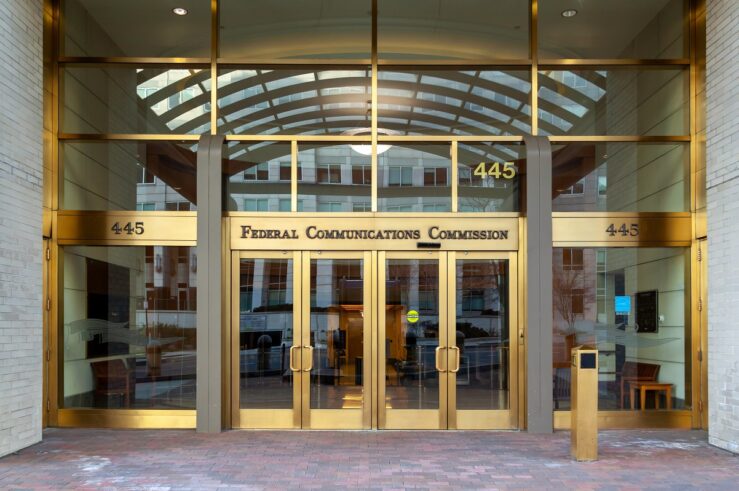Showing results for: “Google shopping manne”
The FTC Tacks Into the Gale, Battening No Hatches: Part 2
Part 1 of this piece can be found here. Emergence of the ‘Neo-Brandeisians’ Thus, matters unfolded until the curtain began to descend on the second Obama term in 2016. In the midst of presidential primary season, a targeted political challenge to the prevailing economic approach to antitrust first came to light. No one has yet ... The FTC Tacks Into the Gale, Battening No Hatches: Part 2
Right to Anonymous Speech, Part 3: Anonymous Speech and Age-Verification Laws
An issue that came up during a terrific panel that I participated in last Thursday—organized by the Federalist Society’s Regulatory Transparency Project—was whether age-verification laws for social-media use infringed on a First Amendment right of either adults or minors to receive speech anonymously. My co-panelist Clare Morell of the Ethics and Public Policy Center put ... Right to Anonymous Speech, Part 3: Anonymous Speech and Age-Verification Laws
Gomez Confirmed to FCC: Here Comes Net Neutrality, But First…
The U.S. Senate moved yesterday in a 55-43 vote to confirm Anna Gomez to the Federal Communications Commission. Her confirmation breaks a partisan deadlock at the agency that has been in place since the beginning of the Biden administration, when Commissioner Jessica Rosenworcel vacated her seat to become FCC chair. The commission now has a ... Gomez Confirmed to FCC: Here Comes Net Neutrality, But First…
Right to Anonymous Speech, Part 2: A Law & Economics Approach
We at the International Center for Law & Economics (ICLE) have written extensively on the intersection of the First Amendment, the regulation of online platforms, and the immunity from liability for user-generated content granted to platforms under Section 230 of the Communications Decency Act of 1996. One of the proposals we put forward was that ... Right to Anonymous Speech, Part 2: A Law & Economics Approach
Antitrust at the Agencies Roundup: Back to the Past Edition
Labor Day approaches with most of us looking forward to a long weekend off, but there’s much in competition world looming on the horizon. As I am looking forward to a couple of days off, I’ll offer more of an annotated bibliography than analysis. But also a bit of discussion, because I am what I ... Antitrust at the Agencies Roundup: Back to the Past Edition
Antitrust at the Agencies Roundup: The Cat’s Tuches of Summer Edition
I had thought we were in the dog days of summer, but the Farmer’s Almanac tells me that I was wrong about that. It turns out that the phrase refers to certain specific dates on the calendar, not just to the hot and steamy days that descend on the nation’s capital in . . . ... Antitrust at the Agencies Roundup: The Cat’s Tuches of Summer Edition
Broadband Deployment, Pole Attachments, & the Competition Economics of Rural-Electric Co-ops
In our recent issue brief, Geoffrey Manne, Kristian Stout, and I considered the antitrust economics of state-owned enterprises—specifically the local power companies (LPCs) that are government-owned under the authority of the Tennessee Valley Authority (TVA). While we noted that electricity cooperatives (co-ops) do not receive antitrust immunities and could therefore be subject to antitrust enforcement, we ... Broadband Deployment, Pole Attachments, & the Competition Economics of Rural-Electric Co-ops
South Africa’s Competition Proposal Takes Europe’s DMA Model to the Extreme
The South African Competition Commission (SACC) has proposed changes to the nation’s digital-market regulation that could deal a significant blow to an already struggling South African economy. Ostensibly intended to protect online competition, the SACC’s plan to reshape the business models of “online intermediation platforms” like Google and Booking.com would entail a radical departure from traditional competition regulation. This ... South Africa’s Competition Proposal Takes Europe’s DMA Model to the Extreme
Antitrust at the Agencies Roundup: Kill All the Widgets Edition
Over the river, into the woods, and down into the weeds we go. There’s a whole lot of drama going on at the Federal Trade Commission (FTC), not least because of recent correspondence between the U.S. House Oversight Committee and FTC Chair Lina Khan that might politely—euphemistically, really—be termed “heated.” But I’m not gonna go ... Antitrust at the Agencies Roundup: Kill All the Widgets Edition
The FTC’s Gambit Against Amazon: Navigating a Multiverse of Blowback and Consumer Harm
The Federal Trade Commission (FTC) is reportedly poised some time within the next month to file a major antitrust lawsuit against Amazon—the biggest yet against the company and the latest in a long string of cases targeting U.S. tech firms (see, for example, here and here). While specific details of the suit remain largely unknown ... The FTC’s Gambit Against Amazon: Navigating a Multiverse of Blowback and Consumer Harm
Antitrust and FCC Oversight Are Needed to Promote Broadband Deployment in the Tennessee Valley
In late June, Sen. Mike Lee (R-Utah) sent a letter to Assistant Attorney General Jonathan Kanter arguing that the U.S. Justice Department (DOJ) needs to investigate the Tennessee Valley Authority (TVA) and its local power companies (LPCs) on grounds that abuses of the pole-attachment process appear to be slowing broadband deployment. Given that Congress has prioritized subsidizing broadband access ... Antitrust and FCC Oversight Are Needed to Promote Broadband Deployment in the Tennessee Valley
Does ‘Open Finance’ Promote Competition or Facilitate Free Riding?
Financial technology, or so-called “fintech,” is disrupting the financial sector, and that’s a good thing. Fintech services are making finance more digital and more user-friendly. This, in turn, has led to reduced transactions costs and increased levels of competition, innovation, and financial inclusion. Alas, the emergence of fintech has also been accompanied by a rising ... Does ‘Open Finance’ Promote Competition or Facilitate Free Riding?
















